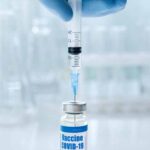Two studies on the physical response of patients with rheumatic diseases to vaccination against SARS-CoV-2 are featured in the January issue of Arthritis & Rheumatology.
First, B cell depletion is an established therapeutic principle in a wide range of autoimmune diseases. However, B cells are also critical for inducing protective immunity after infection and vaccination. Thus, Simon et al. undertook a study to assess humoral and cellular immune responses after infection with, or vaccination against, SARS-CoV-2 in patients with B cell depletion and controls who are B cell competent.
In the second study, Connolly et al. evaluated disease flare and post-vaccination reactions (reactogenicity) in patients with rheumatic and musculoskeletal diseases (RMDs) following two-dose SARS-CoV-2 messenger RNA (mRNA) vaccination.
The Studies
Simon et al. assessed antibody responses (tested using enzyme-linked immunosorbent assay) and T cell responses (tested using interferon-γ enzyme-linked immunospot assay) against the SARS-CoV-2 spike S1 and nucleocapsid proteins in a limited number of previously infected (n=6) and vaccinated (n=8) patients with autoimmune diseases and B cell depletion, as well as previously infected (n=30) and vaccinated (n=30) healthy controls.
The researchers observed B cell and T cell responses to the nucleocapsid protein only after infection; however, B cell and T cell responses to spike S1 were found after both infection and vaccination. Vaccination induced a SARS-CoV-2 antibody response in all vaccinated controls (30 of 30 [100%]), but in none of the vaccinated patients with B cell depletion (0 of 8). In contrast, after SARS-CoV-2 infection, both the patients with B cell depletion and healthy controls developed antibodies. T cell responses against the spike S1 and nucleocapsid proteins were found in both infected and vaccinated patients with B cell depletion, as well as in the control group.
These data show that B cell depletion completely blocks humoral but not T cell SARS-CoV-2 vaccination response. Further, limited humoral immune responses are found after SARS-CoV-2 infection in patients with B cell depletion.
Connolly et al. studied patients with rheumatic and musculoskeletal diseases (RMD) who received a two-dose SARS-CoV-2 mRNA vaccination between December 2020 and April 2021. The patients (n=1,377) completed questionnaires detailing local and systemic reactions experienced within seven days of each vaccine dose (dose 1 and dose 2), and one month after dose 2, detailing any flares of their RMD. Associations between demographic/clinical characteristics and flares requiring treatment were evaluated using modified Poisson regression.
Among the patients, 11% reported flares requiring treatment; there were no reports of severe flares. Flares were associated with prior SARS-CoV-2 infection (relative risk [RR] 2.09, P=0.02), flares in the six months preceding vaccination (RR 2.36, P<0.001), and the use of combination immunomodulatory therapy (RR 1.95, P<0.001). The most frequently reported local and systemic reactions included injection site pain (87% after dose 1, 86% after dose 2) and fatigue (60% after dose 1, 80% after dose 2). Reactogenicity increased after dose 2, particularly for systemic reactions. No allergic reactions or SARS-CoV-2 diagnoses were reported.
In short, flares of underlying RMD following SARS-CoV-2 vaccination were uncommon. Local and systemic reactions typically did not interfere with daily activity.
The authors conclude, “these early safety data can help address vaccine hesitancy in RMD patients.”
For full study details, including source material, refer to the full articles.
Excerpted and adapted from:
- Connolly CM, Ruddy JA, Boyarsky BJ, et al. Disease flare and reactogenicity in patients with rheumatic and musculoskeletal diseases following two-dose SARS–CoV-2 messenger RNA vaccination. Arthritis Rheumatol. 2022 Jan;74(1):28–32.
- Simon D, Tascilar K, Schmidt K, et al. Brief report: Humoral and cellular immune responses to SARS–CoV-2 infection and vaccination in autoimmune disease patients with B cell depletion. Arthritis Rheumatol. 2022 Jan;74(1):33–37.


